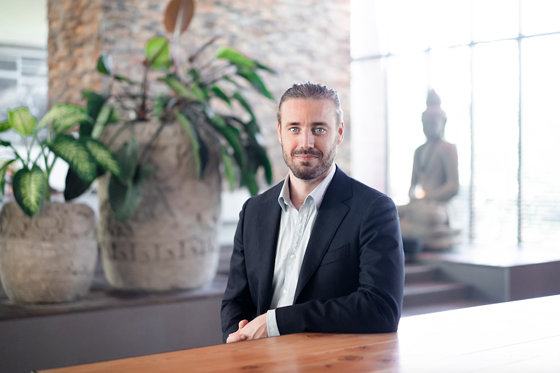The Explorer’s Edge A Monthly Community Gathering Dedicated to Psychedelic Education NOVEMBER 2022 Edition | THE PHILOSOPHY OF PSYCHEDELICS
Featuring Dr. Aidan Lyon, Philosopher at the University of AmsterdamThe Philosophy of Psychedelics - Five Key Insights:
1. Psychedelic means “mind-revealing,” not “mind-distorting.”
Psychedelics have come to be considered as hallucinatory or mind-bending substances rather than revelatory tools for insight that are incredibly valuable for decision-making. The word psychedelic comes from the Greek for “mind-revealing,” meaning it surfaces information from an unconscious to a conscious place. Once we become aware of it, we may recognize it as always having been there, just outside the frame of our perceptual awareness.
2. Many kinds of experiences can be psychedelic.
By this definition of a psychedelic experience (as that which releases or reveals previously unconscious information to awareness), there are many substances, practices, and interventions with the potential to be psychedelic, including but not limited to: dance, meditation, yoga, breathwork, and bodywork. By this reasoning, we can also assume that not all experiences induced by psychedelic substances may actually be psychedelic in nature.
3. Some experiences are more psychedelic — that is, revelatory — than others.
There are four major dimensions to a psychedelic experience, and they can vary in intensity:
Scope, or how much information is revealed (is it a melody or the whole symphony?)
Clarity, or the detail or distortion of that information (how clearly is it coming through?)
Duration, or for how long the information is available to us (was it a bolt of insight or a blossoming into understanding?)
Novelty, or how “deep” the information is surfacing from within our unconscious (how well do we recognize it?)
4. These experiences can be complementary in combination.
For example, although everyone is different, psychedelic experiences like meditation tend to have a lower intensity when it comes to novelty and scope but a higher intensity when it comes to clarity and duration. Psychedelic substances, on the other hand, may induce experiences that are greater in novelty and scope but lower in clarity and duration. By combining interventions, there is the potential to enhance the information revealed beyond the level of a singular experience.
5. To understand mystical experiences, describe the practice — not the outcome.
If psychedelic experiences are mind-revealing, then mystical experiences are like a higher octave of "soul-revealing." Mystical experiences are, by nature, ineffable, which means they exist outside our ability to describe them. Concepts like interconnectedness, oneness, and unity can actually misinterpret these inherently non-conceptual experiences. Ineffability creates the space to let the experience simply be what it is. So, if we can't describe the experience itself, what we can describe are the practices that surround and attend it. Across traditions, these practices tend to focus on the freedom, loosening, and movement of the body-mind.

GUEST SPEAKER
DR. AIDAN LYON
Aidan Lyon is a philosopher at the University of Amsterdam. He completed his Ph.D. on the philosophical foundations of probability at the Australian National University in 2009, and his current research focuses on psychedelics, meditation, uncertainty, wisdom, and collective decision-making. He is also the CEO and co-founder of DelphiCloud, a company that helps organizations improve their decision-making processes.

HOST
MARTIJN SCHIRP
Co-Founder &
Chief Visionary Officer
Martijn has championed the vision of Synthesis since he co-founded the organization in 2018. Formerly CEO and now Chief Visionary Officer, he has stewarded Synthesis from early concept to a maturing organization with the mission of making professional, legal, and ethical psychedelic experiences accessible. Under Martijn's leadership, Synthesis' began its development of "The Synthesis Way,' a wisdom-inspired, science-informed, and ethically sound retreat container pioneered via an interdisciplinary and non-directive approach to facilitation that acts as the foundation for all of the organization's retreats and training programs.
The Explorers Edge
A Monthly Online Community Gathering Dedicated to Psychedelic Education
The Explorer’s Edge exists to educate people on a vast array of relevant and timely psychedelic topics. Each month we will gather in a live, online community forum and focus on the exploration of a topic, aiming to create a safe and inspiring place where people from around the globe can plug into the pulse of the modern-day psychedelic movement by gaining access to relevant information, trusted experts, and valuable insights into the potential rewards and risks of psychedelics as told through the experiences of those on the leading edge of the psychedelic resurgence.
Whether you are a seeker or a psychonaut, a psychedelic doubter or believer, or somewhere in between, we applaud your curiosity and welcome you on this journey.